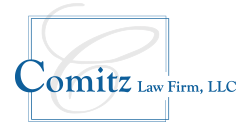 While we can’t predict the future with absolute accuracy, we can plan for it. Estate planning can provide a degree of certainty in an uncertain world. Typically consisting of a number of legal documents, an estate plan serves to provide for loved ones after death and ensure that assets are distributed in a timely manner. The minimization of expenses and taxes can also be accomplished with estate planning. Additionally, an estate plan can document your wishes regarding certain kinds of medical treatment. It also enables you to name someone to make health care decisions for you.
While we can’t predict the future with absolute accuracy, we can plan for it. Estate planning can provide a degree of certainty in an uncertain world. Typically consisting of a number of legal documents, an estate plan serves to provide for loved ones after death and ensure that assets are distributed in a timely manner. The minimization of expenses and taxes can also be accomplished with estate planning. Additionally, an estate plan can document your wishes regarding certain kinds of medical treatment. It also enables you to name someone to make health care decisions for you.
Assets
For the purposes of estate planning, “assets” could consist of such things as houses, cars, stocks, artwork, life insurance, and pensions. Assets can be preserved using several different estate planning “tools”, which include wills, trusts and powers of attorney.
Wills
A will is arguably the most important component of an estate plan. It governs how your estate is distributed. If you pass away without a will, your property will be distributed according to the state’s intestacy law rather than by your wishes.
Wills can include the appointment of legal guardians for minor children. If a guardian is not named in a will, a court may appoint someone. Your will also allows you to appoint a personal representative (known as an “executor”) to administer your estate. In the absence of an executor, the probate court appoints an administrator. If you have no relatives or they can’t be located, your estate will ultimately go to the government.
Trusts
A trust is an estate planning and property management tool. It is created when, the property owner (the “trustor” or “grantor”) transfers legal ownership to a person or institution (the “trustee”) to manage that property.
There are two broad categories of trusts, testamentary trusts and living trusts.
The former (also known as an inter vivos trust) is created by the grantor during his or her lifetime, while the latter is created by the grantor’s will. A funded living trust is not subject to a probate process that can be costly and time-consuming.
Trusts are either revocable or irrevocable. There are a wide array of specialized trusts. The following are but a few examples:
Education trusts – provide funding for the beneficiary’s education.
Special-needs trusts – ensure that disabled beneficiaries don’t lose government benefits such as Supplemental Security Income (SSI), Medicaid, vocational rehabilitation, and subsidized housing.
Spendthrift trusts – protect trust property from a financially irresponsible beneficiary.
Financial Powers of Attorney
A power of attorney (POA) is a legal document that allows a person (the “principal”) to identify and authorize another person (referred to as the “agent” or “attorney-in-fact”), to take care of financial matters on their behalf.
Powers of attorney may be limited in scope and/or duration. A general power of attorney is much broader, giving the agent the same authority as the principal. In Pennsylvania a durable financial power of attorney allows the principal to delegate any type of financial responsibility to the agent.
A durable power of attorney becomes effective immediately upon the creation of the document and survives and stays effective even if the principal becomes incapacitated. On the other hand, a springing power of attorney does not become effective when the document is created. Instead it “springs” to life only upon a certain event that’s designated in the POA.
If someone becomes unable to manage their affairs and they do not have a power of attorney in place, a court may appoint a guardian to handle those affairs for them.
Health Care Preferences
Estate plans can contain documents designed to honor your health care preferences. Two of the most common documents are medical powers of attorney and living wills.
Medical Power of Attorney
A medical power of attorney is a legal document that allows you (the “principal”) to name someone as your health care agent. The agent is authorized to oversee your medical care and make health care decisions for you if you ever become unable to do so. Before the agent can exercise his or her power the principal’s physician must first certify that the patient is not able to make medical decisions.
Living Will
This document enables an individual to provide treatment instructions regarding the types of medical treatment and care he or she wants to receive or refuse at the end of life. A living will does not become ineffective solely due to the passage of time. Unless a living will states a time of termination, it is valid until revoked by the principal.
Even if you already have an estate plan it is prudent to have it reviewed by an experienced attorney on a regular basis to be sure that it addresses your current circumstances.
If you need assistance creating an estate plan, call Comitz Law at 570-829-1111 or email info@comitzlaw.com.


